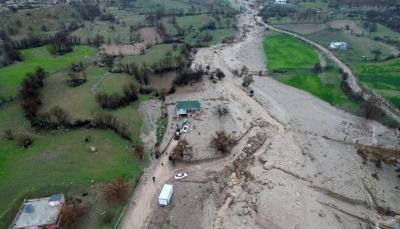A retail store purchases goods or services from a producer or wholesaler and then sells them to customers. The sector is broad, encompassing everything from food and fashion to home furnishings and automobiles.
Whereas the retail sector’s scale and diversity of segments provide many chances for business owners, it is also tremendously cutthroat, making it a dangerous venture. However, with some forethought, you may create a retail business that stands the test of time. Here’s everything you need to know about starting a retail store.
Table of Contents
Toggle1. Start With Business Plan
Creating a business plan is the first step in starting a retail store. For starters, decide on the type of store you want to establish. A business plan is a document that outlines your store’s future goals and how you plan to attain them. Consider it your road map to prosperity and any prospective stumbling blocks. Your strategy should illustrate that you’re thinking at least 5 years ahead and include indicators for key milestones.
In your business plan structuring, you need to make sure it answers the following questions:
- What is being sold?
- Who are you selling to?
- What is your spending structure?
- Who are your competitors?
- Who will be on your executive team?
2. Handle the Legal Aspects

Choosing a corporate structure, adhering to any restrictions, and acquiring the necessary licenses and permits are all part of the legal essentials. Legal structures vary from one country to another. As such, you need to be aware of all the needed legal attributes that you are going to need before you get your store up and running.
You should not overlook this. If you are unsure of anything, get in touch with a lawyer who can guide you through setting up a successive retail store.
3. Get in Touch with Suppliers

If you are starting a retail shop, you need suppliers to work with. If you are planning to start a home accessories retail store, for instance, you need reliable suppliers that will be dependable in meeting your supply-demand. Take a kitchen manufacturer into context. They will be able to offer kitchen supplies such as cabinets and counters that will give you a competitive edge in the area of operation.
Before you close the deal with any supplier, ensure that you come to a win-win agreement with the suppliers. You need to know what you are looking for in a supplier and whether or not they will be able to meet the end of their bargain.
4. Establish Good Vendor Relationship

When developing a retail outlet, building relations with vendors is crucial. Despite the hurdles that small business owners encounter, it is critical for you to continually gratify clients. Building excellent relationships with vendors is an effective strategy for you as an entrepreneur, particularly as a retail store owner, to avoid problems.
It will place your retail store up for success if you can immediately create relationships with vendors. If you’re working with merchants from other countries, this can be tough.
5. Look into Marketing Options

Building a successful retail store requires a strong marketing strategy. If you currently have an e-commerce retail business and want to branch out into a physical location, you might want to start with pop-up stores. These stores are open for a limited time in non-permanent locations. For instance, your shoe store might operate a pop-up store for the length of a one-day event.
Pop-up stores allow you to move your brand around or provide a real place to draw clients. Opening pop-up stores is a good approach to see if your online retail store would work in a physical location.
6. Work on Your Financial Plan

While having a unique concept is beneficial to your business, your retail store will not thrive without adequate funding. Setting a budget for your startup company can seem daunting, but it’s much simpler to do if you know where the major expenses are coming from.
Think about rent, utilities, and everything that your retail store will need for it to run successfully. You should also consider whether you’ll need staff and how many so that you can plan the store’s operations well:-on the financial side.
The Bottom Line
To create a retail store, you must first define your target market. Start looking for a place and checking off legal criteria once you’ve decided who you’re selling to and what you’re offering to them. After you’ve taken care of your legal and financial obligations, consider the various marketing options available to you.











